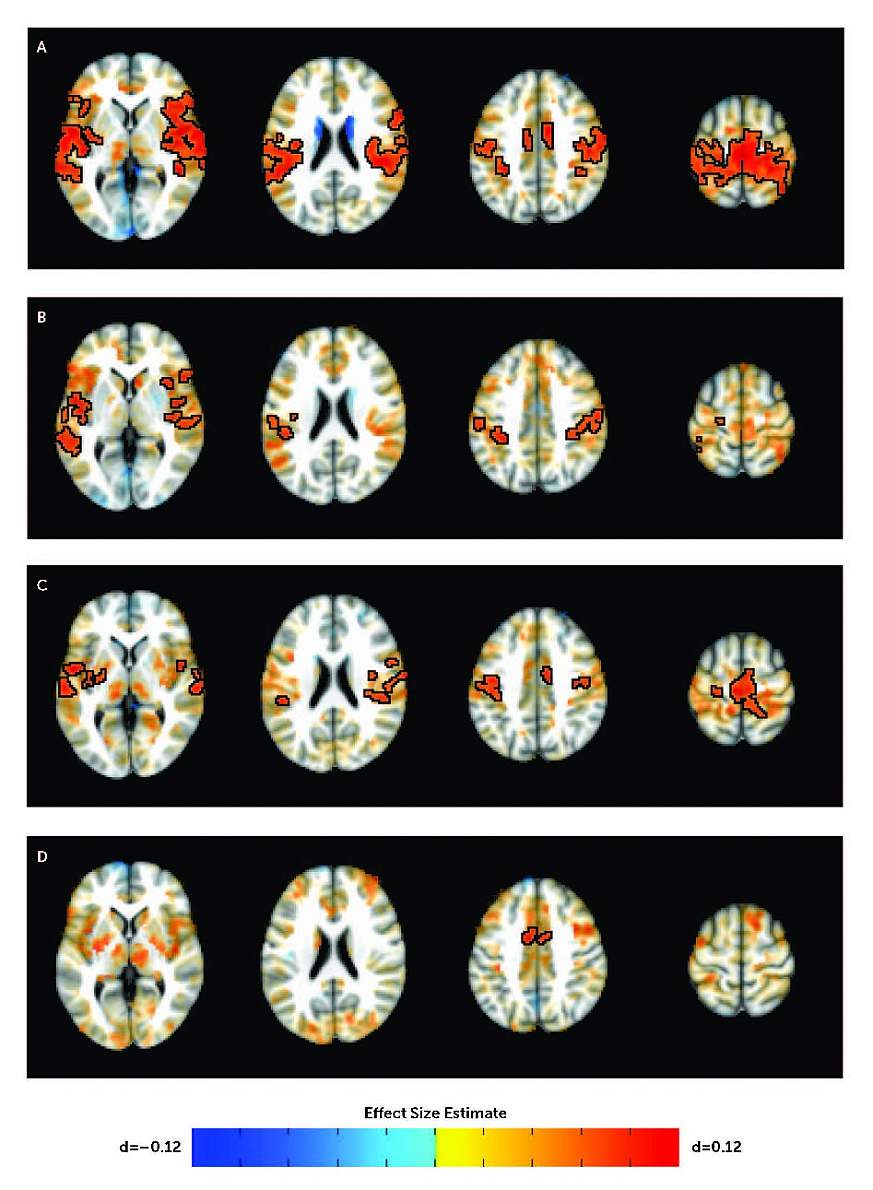You are here
Media Advisory
Wednesday, March 13, 2024
NIH researchers identify brain connections associated with ADHD in youth
Large study finds atypical interactions between the frontal cortex and information processing centers deep in the brain.

What
Researchers at the National Institutes of Health (NIH) have discovered that symptoms of attention-deficit/hyperactivity disorder (ADHD) are tied to atypical interactions between the brain’s frontal cortex and information processing centers deep in the brain. The researchers examined more than 10,000 functional brain images of youth with ADHD and published their results in the American Journal of Psychiatry. The study was led by researchers at NIH’s National Institute of Mental Health (NIMH) and National Human Genome Research Institute.
Luke Norman, Ph.D., a staff scientist in the NIMH Office of the Clinical Director, and colleagues analyzed brain images supplied by more than 8,000 youth with and without ADHD sourced from six different functional imaging datasets. Using these images, the researchers examined associations between functional brain connectivity and ADHD symptoms.
They found that youth with ADHD had heightened connectivity between structures deep in the brain involved in learning, movement, reward, and emotion (caudate, putamen, and nucleus accumbens seeds) and structures in the frontal area of the brain involved in attention and control of unwanted behaviors (superior temporal gyri, insula, inferior parietal lobe, and inferior frontal gyri).
While neuroscience researchers have long suspected that ADHD symptoms result from atypical interactions between the frontal cortex and these deep information-processing brain structures, studies testing this model have returned mixed findings, possibly due to the small nature of the studies, with only 100 or so subjects. Researchers suggest that the smaller studies may not have been able to reliably detect the brain interactions leading to the complex behaviors seen in ADHD.
The findings from this study help further our understanding of the brain processes contributing to ADHD symptoms—information that can help inform clinically relevant research and advancements.
Who
Luke Norman, Ph.D., staff scientist in the NIMH Office of the Clinical Director and lead author of the paper
Article
Norman, L. J., Sudre, G., Price, J., & Shaw, P. (2024). Subcortico-cortical dysconnectivity in ADHD: A voxel-wise mega-analysis across multiple cohorts. American Journal of Psychiatry. https://ajp.psychiatryonline.org/doi/10.1176/appi.ajp.20230026
About the National Institute of Mental Health (NIMH): The mission of the NIMH is to transform the understanding and treatment of mental illnesses through basic and clinical research, paving the way for prevention, recovery, and cure. For more information, visit the NIMH website.
About the National Institutes of Health (NIH): NIH, the nation's medical research agency, includes 27 Institutes and Centers and is a component of the U.S. Department of Health and Human Services. NIH is the primary federal agency conducting and supporting basic, clinical, and translational medical research, and is investigating the causes, treatments, and cures for both common and rare diseases. For more information about NIH and its programs, visit www.nih.gov.
NIH…Turning Discovery Into Health®
